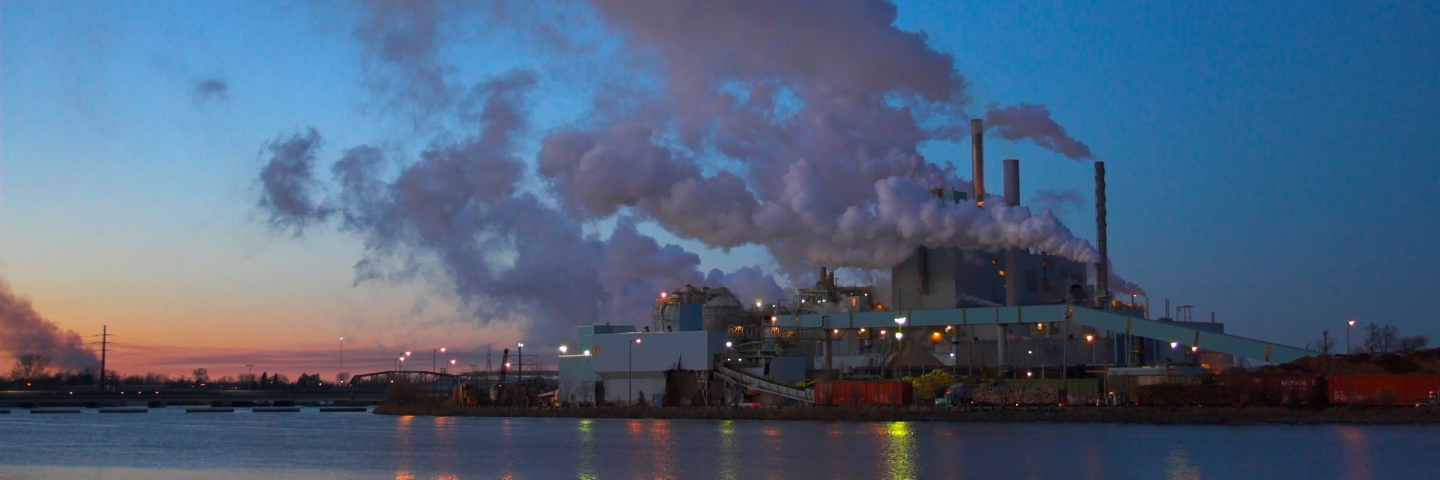An air emission permit is a legal document that describes how a facility must operate to meet state and federal air regulations, and to minimize the impact of air emissions on people and the environment. The permit addresses all sources of air emissions at a facility. Some federal standards are for specific types of units or processes within a facility. Construction permits address the impact of newly constructed facilities, or modifications to existing facilities, that have the potential to emit air pollution above federal or state thresholds.
Air permitting decisions depend on both what a facility has the potential to emit, and its actual emissions. Facilities that have the potential to emit (PTE) any regulated pollutant in amounts greater than specific thresholds must obtain a total facility permit. Certain sources that have low actual emissions may qualify as a conditionally exempt source by complying with technical standards.
PTE is the maximum amount of pollution an emission unit or source of pollution can emit (based on its physical and operational design) while operating at maximum capacity for the maximum hours of operation (usually 8,760 hours per year).
A facility may propose a limit on an emissions unit, a group of units, or an entire facility (such as on the number of hours of operation or amount of material processed) to reduce its potential to emit so that it can avoid certain requirements. These limits are sometimes called synthetic minor limits. Learn more:
Learn more about which are pollutants are regulated:
Emission thresholds
Federal and state emission thresholds trigger the need for an air quality operating permit. If the total facility PTE for any regulated pollutant is at or above a federal threshold, the facility will need a Title V permit, unless a synthetic minor limit brings its PTE below the federal thresholds. Some sources will need a Title V permit regardless of the potential emissions (Minn. R. 7007.0200).
If the total facility PTE is less than all federal thresholds but at or above state thresholds, or a synthetic minor limit enables the facility to avoid a Title V permit, the facility will need a state permit.
If the total facility PTE is less than both the federal and state thresholds (without any limits on its PTE) the facility may not need a permit unless it meets one of the criteria outlined in Minn. R. 7007.0250. However, the facility should keep records of its calculations.
Total facility PTE thresholds (tons per year)
| Pollutant | Federal (Title V/Part70) | State |
|---|---|---|
| Nitrogen oxides | 100 | NA |
| Sulfur dioxide | 100 | 50 |
| Volatile organic compounds | 100 | 100 |
| Particulate matter less than 10 microns in diameter | 100 | 25 |
| Particulate matter less than 2.5 microns in diameter | 100 | NA |
| Carbon monoxide | 100 | NA |
| Lead | 10 | 0.5 |
| Greenhouse gases (carbon-dioxide equivalent) | 100,000 | NA |
| One hazardous air pollutant | 10 | NA |
| More than one hazardous air pollutant | 25 | NA |
| All other new source review pollutants | 100 | NA |
Air permit fees
Application fees must be submitted with your permit application. The submittal cover page form will help you add up the points assigned to each type of permit application or request. Multiply the points assessed for your submittal by $285 to get your total fee.
- (8/1/2024)
Additional fees may be assessed if your permit requires added work. See the Air permit fees page for more information.
Construction permit timeframe
The MPCA's goal is to issue permits authorizing construction in 150 days. Your permit may require more time if it involves:
- prevention of significant deterioration permitting.
- air dispersion modeling for criteria air pollutants or air toxics.
- environmental review – use this form to see if it's required for your project:
- air emissions risk analysis.
- complex technical or regulatory analysis.
- a potentially controversial change.
The MPCA processes permit applications on a first come, first served basis. For time-sensitive projects where delays may be costly, you can request expedited review:
Find air permits issued in Minnesota
Recent air permits issued by the MPCA can be found in What's in My Neighborhood. The tool does not currently include all previously issued air emissions permits. All air emissions permits issued by MPCA are available by information request or can be reviewed at MPCA's St. Paul office, located at 520 Lafayette Road North.
Resources
- Air permit applications in Minnesota – An interactive tool displays the location and status of air quality permit applications in Minnesota.
